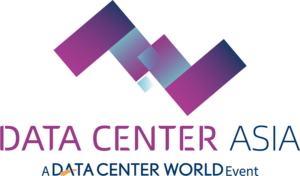Data center architecture is a critical aspect of modern IT infrastructure, influencing performance, scalability, and reliability. As organizations increasingly rely on data centers for their operations, understanding the fundamental principles and design concepts becomes essential. Events like DCA HK and DCA Kuala Lumpur, DCA Jakarta provide valuable insights into these architectural elements, helping businesses optimize their data center investments.

Key Principles of Data Center Architecture
At its core, data center architecture must prioritize efficiency, scalability, and security. Efficiency involves optimizing resource usage, such as power and cooling, to minimize operational costs. Scalability ensures that the infrastructure can grow with the organization’s needs, accommodating increased workloads without significant redesigns. Security is paramount, protecting sensitive data from breaches and ensuring compliance with regulations. By attending data center conferences 2025, professionals can learn about innovative approaches to integrating these principles into their designs.
Design Concepts for Modern Data Centers
Modern data center architecture incorporates various design concepts tailored to meet specific business needs. Modular design allows for flexibility and rapid deployment, enabling organizations to add capacity as required. High-density configurations maximize space utilization, allowing more equipment in a smaller footprint. Furthermore, the use of virtualization technologies enhances resource allocation and improves overall performance. Events like Data Center Asia highlight these design strategies, showcasing how they can be effectively implemented in real-world scenarios.
Importance of Redundancy and Resilience
Redundancy and resilience are vital components of data center architecture. Redundant systems ensure that critical components, such as power and cooling, remain operational even during failures. This level of reliability is essential for maintaining uptime and preventing data loss. Resilience, on the other hand, refers to the ability of the data center to recover quickly from disruptions. Participating in DCA HK allows industry professionals to explore best practices for incorporating redundancy and resilience into their designs, ensuring robust infrastructure.
Energy Efficiency in Data Center Design
Energy efficiency is a growing concern for data center operators, given rising energy costs and environmental regulations. Implementing energy-efficient design concepts, such as hot and cold aisle containment, can significantly reduce cooling costs. Utilizing renewable energy sources also contributes to sustainability goals. Engaging with peers at data center conferences 2025 provides an opportunity to discuss innovative energy solutions and learn from successful case studies presented at Data Center Asia.
Conclusion
Understanding data center architecture is crucial for organizations looking to optimize their IT infrastructure. Key principles such as efficiency, scalability, and security form the foundation of effective design. Events like Data Center Asia offer invaluable opportunities to learn about these concepts and network with industry experts. By becoming an exhibitor at these conferences, businesses can showcase their innovations while gaining insights into the latest trends and best practices in data center architecture. Engaging with these platforms positions organizations for success in a rapidly evolving technological landscape.



